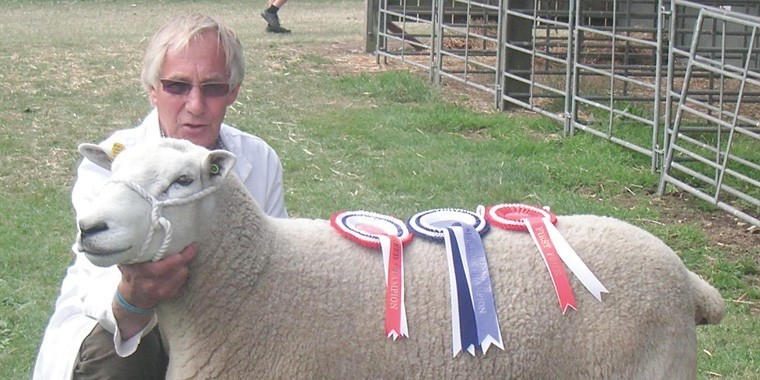Maybe it’s because I’m getting older, or maybe things just move on faster now, but I find it difficult to believe that we are already almost two months (about 17%) into 2017.
With keeping sheep one is very much aware of the cyclical nature of life and here we are with another lambing season rapidly approaching. For some it may already of started, come and gone even, but, I – and I suspect that many others are in the same position – have a couple of weeks to go before lambing begins.
I always find the last few weeks a rather anxious time, just waiting to see the first lambs on the ground, hoping for good strong lambs born without any significant problems and ewes with plenty of colostrum and full of milk. All this is a sure indication that one has managed to get things just about right – all the preparation, all the feeding, all the care and attention, and all this in spite of the capricious nature of the whole process, most of which has to be managed in an environment where we are ultimately at the mercy of the weather.
Farmers – and livestock farmers in particular – are accustomed to dealing with uncertainty and as such are a fairly resilient and pragmatic lot. By pragmatic I don’t mean that they don’t care: they do, it is not a job that can be done satisfactorily if one doesn’t. But they try not to worry about things that are beyond their control. I know lots of very bright, successful people in all sorts of walks of life who really would struggle to cope with lambing a flock of sheep, from both the physical and emotional point of view.
Being accustomed to uncertainty does not however mean that farmers don’t appreciate a little bit of stability. The findings of a series of farmer led discussion groups on Brexit, facilitated by the “Farmers’ Guardian” and published at the end of January, are an indicator of this. According to these, what we seem to want is for farming to be prioritised in trade deals, with no cheap imports.
We can all dream, but how realistic is this? Currently there seems to be more concern in government surrounding a potential threat to the jobs of 5,000 car workers than there is about the future of the whole agricultural industry. Every job is precious, particularly if it is your own job, but things do need to be seen in context. We want a trading environment in which farmers are able to make a fair return from the market, without subsidies. That’s great, but probably more to do with the sort of relationship that we are able to establish with large retailers and our consumers than it has to do with Brexit. We also want continued access to migrant labour. We still want some sort of support payments (capital payments, environmental schemes etc) shouldn’t this be when direct payments go? To pay for this we want to ensure that the funding currently allocated to agriculture is not redeployed elsewhere.
How does this last point equate with the desire to have a fair return from the market without the need for subsidies? It seems that we want to not rely on subsidies, but we do still want support, and we want to hang on to all of the cash just in case. We want stability but we really are not quite sure how we want to achieve it.
We also want a reduction in red tape and bureaucracy in UK agriculture. It’s a lovely idea but, don’t even begin to think that leaving the European Union will significantly reduce this burden. A lot of what we have to put up with is either home generated or is EU derived but gold plated in the UK.
All the time we have any government involvement in agriculture (support) we will have bureaucracy and endless red tape. For almost four decades it has been the desire of successive governments of different hues to micro manage the economy wherever they can. I’m sure a lot of the ills faced by public services in the UK are associated with the proliferation of posts filled by individuals who make no significant contribution to the economy but whose sole purpose is to make sure that others are doing their job correctly and meeting their government imposed targets. Professionalism has been taken away and farmers are better than that.
As time progresses it looks very much that if we are going to survive as an industry, agriculture in general – and the sheep sector in particular – need to regain the ability to farm properly and to farm well. We have got to make the tools for our own survival from within our own resources. This may mean working hand in hand with other sectors of the industry for our mutual benefit. An integrated approach to sheep and arable did, after all, sustain arable crop production on some of the thinner chalky soils for hundreds of years without the need for artificial fertilisers. Read W.H. Hudson’s “A Shepherd’s Life” as a good illustration of this.




